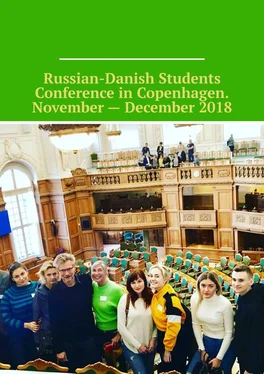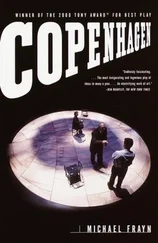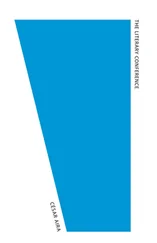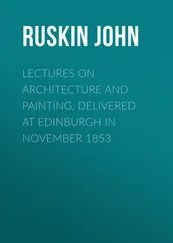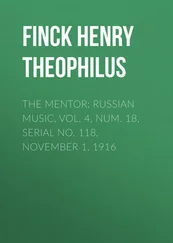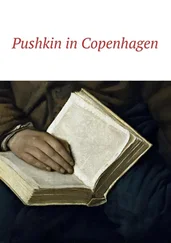Bjørnø Irina - Russian-Danish Students Conference in Copenhagen. November – December 2018
Здесь есть возможность читать онлайн «Bjørnø Irina - Russian-Danish Students Conference in Copenhagen. November – December 2018» — ознакомительный отрывок электронной книги совершенно бесплатно, а после прочтения отрывка купить полную версию. В некоторых случаях можно слушать аудио, скачать через торрент в формате fb2 и присутствует краткое содержание. ISBN: , Жанр: История, Прочая научная литература, Языкознание, Политика, на английском языке. Описание произведения, (предисловие) а так же отзывы посетителей доступны на портале библиотеки ЛибКат.
- Название:Russian-Danish Students Conference in Copenhagen. November – December 2018
- Автор:
- Жанр:
- Год:неизвестен
- ISBN:9785449648280
- Рейтинг книги:3 / 5. Голосов: 1
-
Избранное:Добавить в избранное
- Отзывы:
-
Ваша оценка:
- 60
- 1
- 2
- 3
- 4
- 5
Russian-Danish Students Conference in Copenhagen. November – December 2018: краткое содержание, описание и аннотация
Предлагаем к чтению аннотацию, описание, краткое содержание или предисловие (зависит от того, что написал сам автор книги «Russian-Danish Students Conference in Copenhagen. November – December 2018»). Если вы не нашли необходимую информацию о книге — напишите в комментариях, мы постараемся отыскать её.
Russian-Danish Students Conference in Copenhagen. November – December 2018 — читать онлайн ознакомительный отрывок
Ниже представлен текст книги, разбитый по страницам. Система сохранения места последней прочитанной страницы, позволяет с удобством читать онлайн бесплатно книгу «Russian-Danish Students Conference in Copenhagen. November – December 2018», без необходимости каждый раз заново искать на чём Вы остановились. Поставьте закладку, и сможете в любой момент перейти на страницу, на которой закончили чтение.
Интервал:
Закладка:
Due to the union consisting of Denmark and such states as Canada, the Netherlands, Austria, Poland, Norway and Sweden a multinational UN High Readiness Brigade SHIRBRIG was formed on September 2 in 1997. The main function of this brigade is constant readiness for the relocation to any part of the world within 15—30 days.
Foreign experts note that the role of Denmark in maintaining international peacekeeping is one of the leading ones [3]. Denmark is also one of the few countries that provides a resource such as warships for various operations.
The authorities of Denmark believe that international peacekeeping have a great influence on the image of Denmark on the international scene and also influences the decisions made on the EU level. Therefore, the resources allocated by Denmark differ in scale. For example:
– The permanent strength of the armed forces is 30,000;
– The military budget of Denmark is equal to the costs of the country’s participation in NATO’s military programs and amounts to 1.4% of the country’s annual GDP;
– About 44,000 people took part in NATO operations; and so on.
Conclusion
International peacekeeping is one of the key points of Denmark’s foreign policy as its main aspect is the maintenance of favorable relations with other countries. Also I should point out that the Danish Kingdom has a fairly good and long history of relations with the other countries.
Danish military personnel worthily represent their country abroad, which favorably affects the country’s foreign policy.
References
1. Grishaeva L.E. Russia and the UN: history and modernity. M., 2007
2. Ravens K. Peacekeeping in the Nordic countries: responses to challenges. World Economy and International Relations, 2011, No. 12, p. 57—68
3. Roberts, Adam; Kingsbury, Benedict, ed. (1994). United Nations, a divided world: UN roles in international relations (2nd ed.). Oxford University.
4. S. Shapkin, Foreign Military Review No. 11/2001, Denmark and international peacekeeping.
5. Zapariy Yu. V. UN peacekeeping operations and the Soviet Union: policy and practice – 2004, №31, pp.153
6. Information and analytical portal: interaction of Denmark and NATO [Internet source]. Retrieved from: http://nat.rf/ru/denmark.html (Accessed date: 2018, Sep 16).
Annex
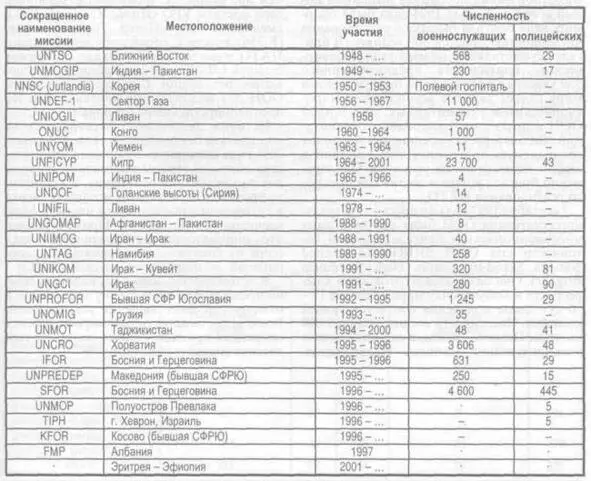
Forgotten referendum of Denmark
Polina Sakharova,3 rdyear student of the faculty of International relations and geopolitics, Institute of World Civilizations, Moscow
Abstract. The article is devoted to the Danish referendum, which contributed to the restriction of state sovereignty and its role in the European area. Studies have shown that in connection with this issue, the Danish government is constantly faced with the question of solving the so-called “integration dilemma”, which involves the choice between the loss by the state of part of national sovereignty and greater integration into the EU structures. Based on the analysis, the author shows how all political institutions and a democratic society interact on this issue to identify a unanimous decision on the role of their state in the EU.
Key words: referendum, sovereignty, justice, state security, integration.
The referendum is quite a frequent phenomenon in the democratic policy of the EU countries. Despite the fact that the European society will introduce a sufficiently active civil position, at the same time difficult questions are raised for voting, which are not always clear to the public.
Denmark’s participation in the EU (since 1973) is limited to the four reservations that the kingdom made for the citizens of the country to approve the 1992 Maastricht Treaty in a referendum. All reservations were the result of a national compromise that was achieved thanks to political parties (except the Progress Party) and recorded in the Edinburgh agreement of the EU.
The restrictions concern the economic and monetary union (the single currency was not introduced in Denmark), cooperation in the sphere of security and justice (the country agreed to participate in the legal process only on an interstate basis), as well as the problems of European citizenship, which was separately indicated by the Amsterdam Treaty 1997 year (the citizenship of Denmark is considered to be a priority in relation to European citizenship).
Denmark’s policy is based on the formation of a “belt of good neighborliness”, for which it is necessary to build relations with Russia, Ukraine, Belarus and Moldova. The Danish government has played a big role in the process of the accession of Bulgaria and Romania to the EU.
The initial position of Denmark was that the countries of the European Union as a single actor in solving world problems. In addition, the course of the Danish policy is aimed at increasing the transparency of decision making, attention to the problem of ecology and the expansion of jobs.
Against the background of the British referendum and its consequences, the events that took place in Denmark at the end of 2015 and which have received new development at the present time have practically gone unnoticed. On December 3, a referendum was held in Denmark to revise the format of the country’s participation in cooperation in the field of justice and home affairs (UVD) in the EU. According to the compromise reached after the first unsuccessful referendum on accepting the Maastricht Treaty in Denmark, the country has a number of exceptions (the so-called Danish reservations), including through cooperation in the field of justice and home affairs, which Denmark can only implement on an intergovernmental basis.
As the space of liberty, security and justice became more common, and the volume of supranational legislation grew, Denmark faced an ever-increasing amount of problems regarding its participation in cooperation in this field. Within the framework of the UVD, a country cannot simply adopt the EU legislation it needs or participate in its development; in order to join any EU project in this area, it must conclude an international agreement with the European Union. 2 According to the Treaty of Lisbon, within the framework of justice and internal affairs, there are no areas of interaction that are carried out exclusively on an intergovernmental basis; cooperation has been transferred to the joint competence of the Union and the Member States. Thus, in the post-Lisbon period, Denmark does not automatically participate in any newly proposed or updated cooperation projects in a framework of freedom, security and justice. In those projects in which Denmark participates, it does so in the framework of international law, and not in the framework of EU law. Before the entry into force of the Treaty of Lisbon, Denmark managed to join the work of Europol, Eurojust and the European arrest warrant. However, now, in the event of updating or reformatting these projects, Denmark will not be able to automatically continue its participation in them.
The decision to hold a referendum was made by the government of Helle Thorning-Schmidt after the terrorist attacks in Copenhagen in February 2015 in order to secure the participation of Denmark in EU police cooperation projects in the framework of the reformed Europol. The terms of the referendum were designated until April 2016.
However, the new center-right government headed by Lars Löcke Rasmussen, which came to power in June 2015, shifted the referendum to December 3, 2015 to avoid the influence of the discussion of British issues and a referendum in the United Kingdom. The Danish government and the elite, in general, believed that against the backdrop of increasing terrorist threat, including in Denmark, the objective need to intensify cross-border police cooperation would be a powerful argument in favor of changing the status of a country within the framework of the YUVD. At the referendum, the Danes were asked to change the format of interaction with the EU in the field of justice and internal affairs and switch to a model similar to the British and Irish, i.e. replace complete non-participation in cooperation with selective participation in it. The results of the referendum were negative. 53.1% of the population opposed the possibility of participating in projects of the EU freedom, security and justice space. The reasons for the failure of the campaign “for” are fairly obvious. The time of the referendum was chosen very unfortunate. Throughout 2015, a migration crisis was raging in Europe. Denmark, which pursues an independent immigration policy, turned out to be a transit country on the path of asylum seekers between Germany and Sweden. As a result of the unprecedented influx of migrants from the countries of the Middle East and Africa, Sweden closed the border with Denmark and introduced passport control. In response, Denmark closed the border with Germany. And in November 2015 there were terrible terrorist attacks in Paris. These events, combined with calls not to give Brussels more national sovereignty, had a strong influence on the outcome of the referendum.
Читать дальшеИнтервал:
Закладка:
Похожие книги на «Russian-Danish Students Conference in Copenhagen. November – December 2018»
Представляем Вашему вниманию похожие книги на «Russian-Danish Students Conference in Copenhagen. November – December 2018» списком для выбора. Мы отобрали схожую по названию и смыслу литературу в надежде предоставить читателям больше вариантов отыскать новые, интересные, ещё непрочитанные произведения.
Обсуждение, отзывы о книге «Russian-Danish Students Conference in Copenhagen. November – December 2018» и просто собственные мнения читателей. Оставьте ваши комментарии, напишите, что Вы думаете о произведении, его смысле или главных героях. Укажите что конкретно понравилось, а что нет, и почему Вы так считаете.
